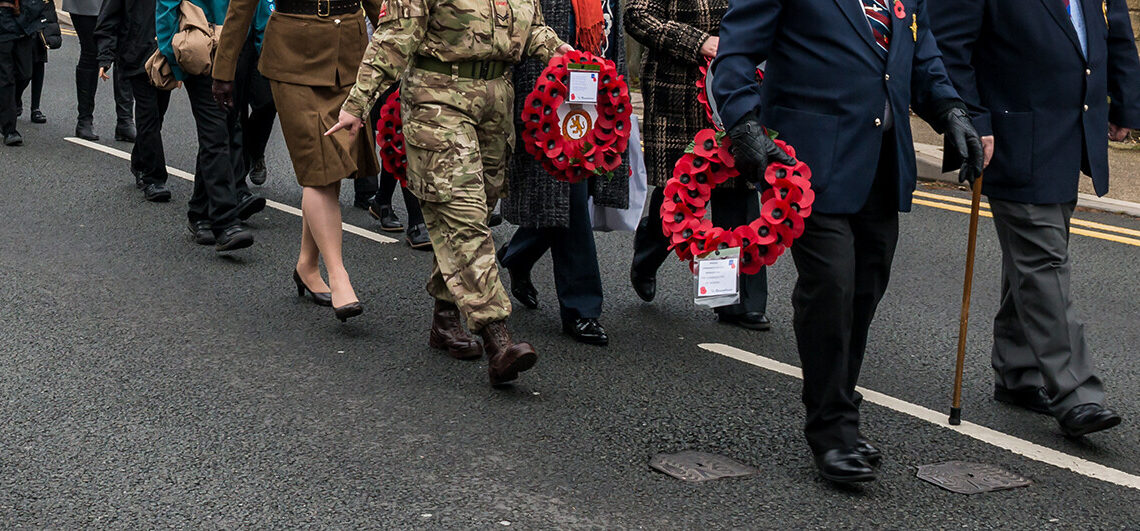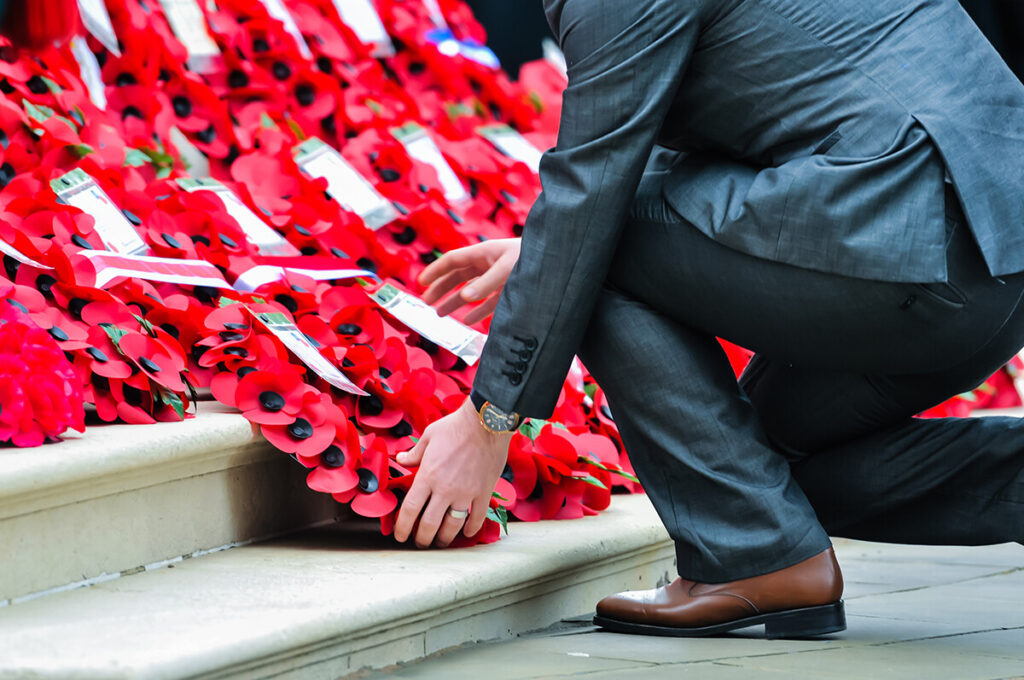
Remembrance
Although Remembrance runs deep, the spirit of November’s tributes is kept vivid by the energy and enthusiasm of the Armed Forces community and those organisations that seek to support Veterans in need.
The original Cenotaph was constructed in a hurry. It was made from wood and plaster to Lutyens’ design and served the first Remembrance ceremony in 1919. It’s fitting that a year on, that same design had been consecrated in stone and has lasted unchanged down the years – through other wars and conflicts as well as in peacetime.
Remembrance Sunday is the nearest Sunday to 11 November. This year it falls on 14 November.
What makes this year’s commemorations that bit more special is that 2021 marks the 100th year since the poppy flower was adopted by The Royal British Legion. The story goes that the British Legion ordered a million poppies from Madame Anna Guérin who had introduced the idea of a simple symbol for international remembrance, before commissioning a further eight million to be manufactured in the UK. They were sold on 11 November that year, making it the first ever poppy appeal.
Recent estimates suggest that around 45 million poppies are sold in the weeks leading up to Remembrance Sunday – by around 40,000 volunteers.

The role of organisations and charities that support Veterans is still vitally important. While the notion is also unchanged, the ways that they support Veterans continues to develop. Many of these organisations have become a lifeline, especially to those Veterans that have struggled with life outside of the Forces, be it because of injury or illness or financial difficulties and so on. Indeed, several Military charities that keep the remembrance theme bright in all seasons have become specialists in some form or other. Blesma, for instance, opportunities and RFEA focus on employment. Elsewhere, while there are combined Forces charities, there are also those that concentrate on a particular Service branch, The Royal Air Force Benevolent Fund, ABF The Soldier’s Charity and the White Ensign Association are all good examples.
It isn’t just the Royal British Legion and other Military charities that take an active role in Remembrance. Many of the UK’s major supermarkets, for example, enable volunteers to distribute poppies in their stores, including Sainsbury’s, Tesco, Morrisons, ASDA and Lidl. (Morrisons customers can donate at the till as well as online.) Elsewhere, hundreds of cardboard trays filled with poppies sit on countertops next to tills or in lobbies of places of work or other public spaces.
The role of organisations and charities that support Veterans is still vitally important.



